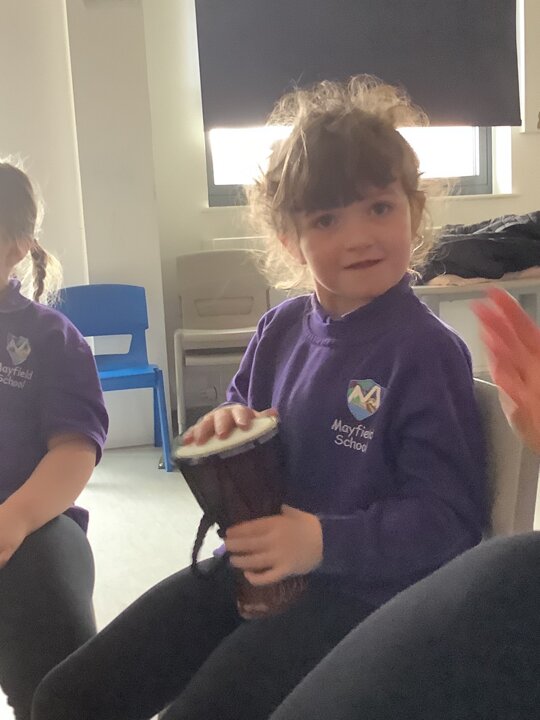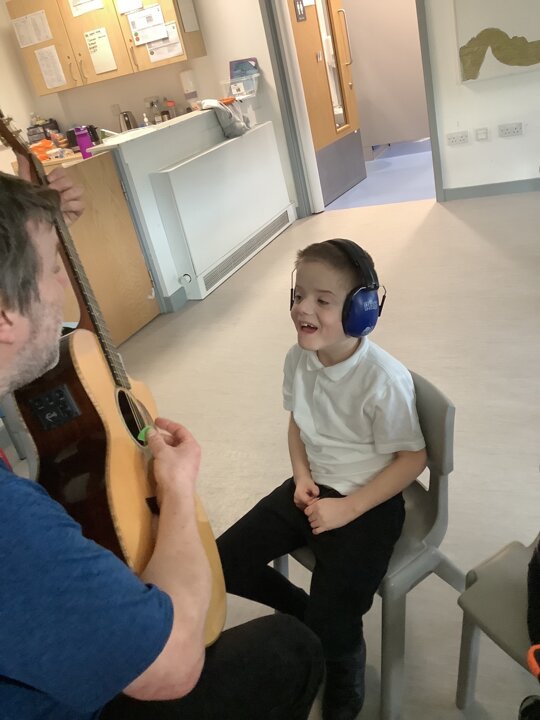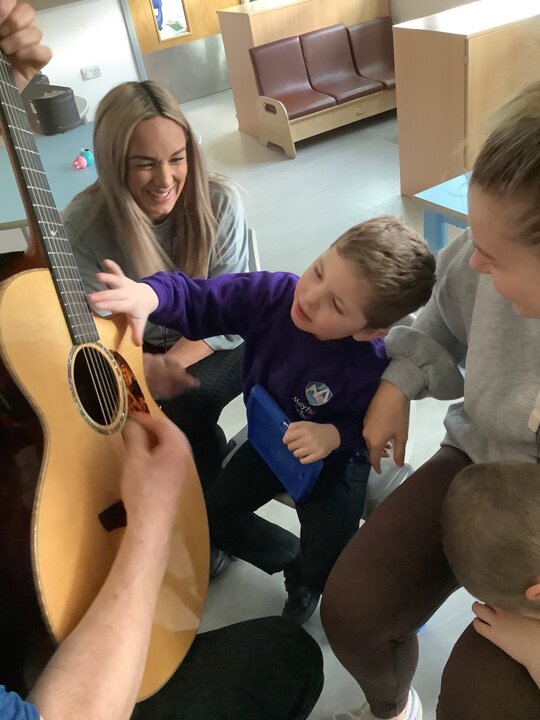Music is delivered in serval different ways in accordance to the equals curriculum.
My Music (Formal and Semi-Formal)
‘My Music’ in the equals curriculum allows learners to express feelings, enhance communication, promote physical well-being, manage stress and promote quality of life. Many skills are encouraged through the sessions including:
- turn taking
- anticipation
- listening
- concentration
- awareness of self and others.
- music awareness skills such as tempo and timbre
Sensory Music & Music Interaction (Pre-formal)
Why is sensory music so important for Pre-formal learners?
Young children with complex needs can benefit enormously from structured listening sessions through intensive interaction and play in order to try to focus on specific sounds or musical notes to help them understand that sounds carry meaning. A child with multi-sensory needs is likely to have poor auditory memory which means they require many repetitions of the same listening experience and require support and time to process auditory information.
What do our sessions look like?
Sensory music sessions are a multi-sensory experience incorporating many of the senses. In most sessions a large and varied selection of instruments are available and pupils are able to make a choice using their method of communication. The sessions provide an opportunity to play musical instruments or listen or feel them being played. There is no right or wrong way to play or interact with music. Creative and spontaneous freedom of expression is encouraged. Music interaction (or sensory dance in KS1) combines music, intensive interaction and movement.


